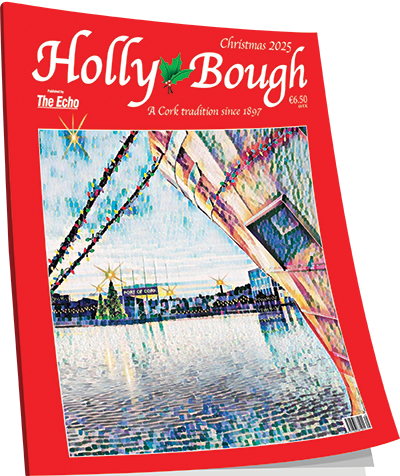WATCH: Women of the Islands: I found a safe haven on Sherkin Island
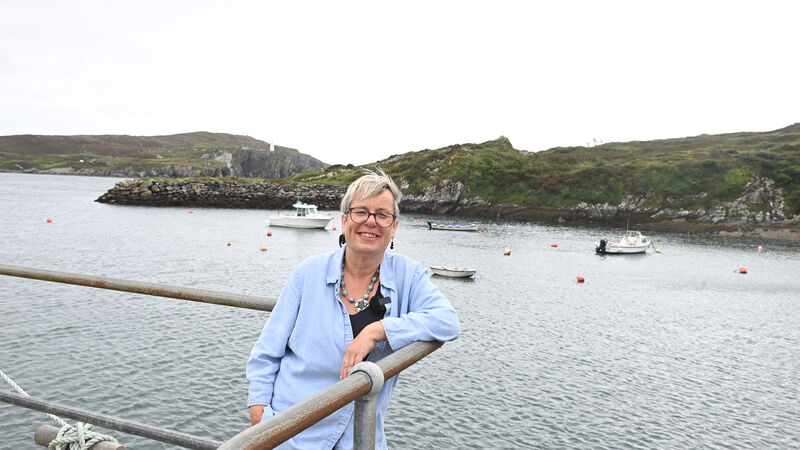
Mags Murphy, who lives on Sherkin Island, West Cork. Pictures and video by Larry Cummins.
“I CAME down here in the month of February on St Brigid’s Day, and from the minute I stepped onto the island - I knew I was home.”
So says Mags Murphy, who lives on Sherkin Island, off the Cork coast, and is mum to two children. Her daughter Niamh recently graduated from university in Galway with a degree in Social Care in the Community, and son David who lives in Barcelona, where he works in IT, is a graduate from CIT.
Mags said: “I’m so proud of both my kids and the adults they have become.”
When David was a baby, his mother Mags was very uneasy about what his prospects in life were going to be.
I was a single mother living in social housing in Thomas Street in Dublin, which unfortunately at that time was an area being ravaged by drugs.
“He was only three years old at the time, but I was so worried about what his future might be, and I was absolutely petrified that he might eventually drift into a life of crime like so many other youngsters in the area.
“I was also concerned about my own quality of life there too. I hated living in a place where the alarms were constantly going off and causing the dogs to start barking for hours on end, and where you had to be on your guard all the time. It was not a relaxed way of life at all.
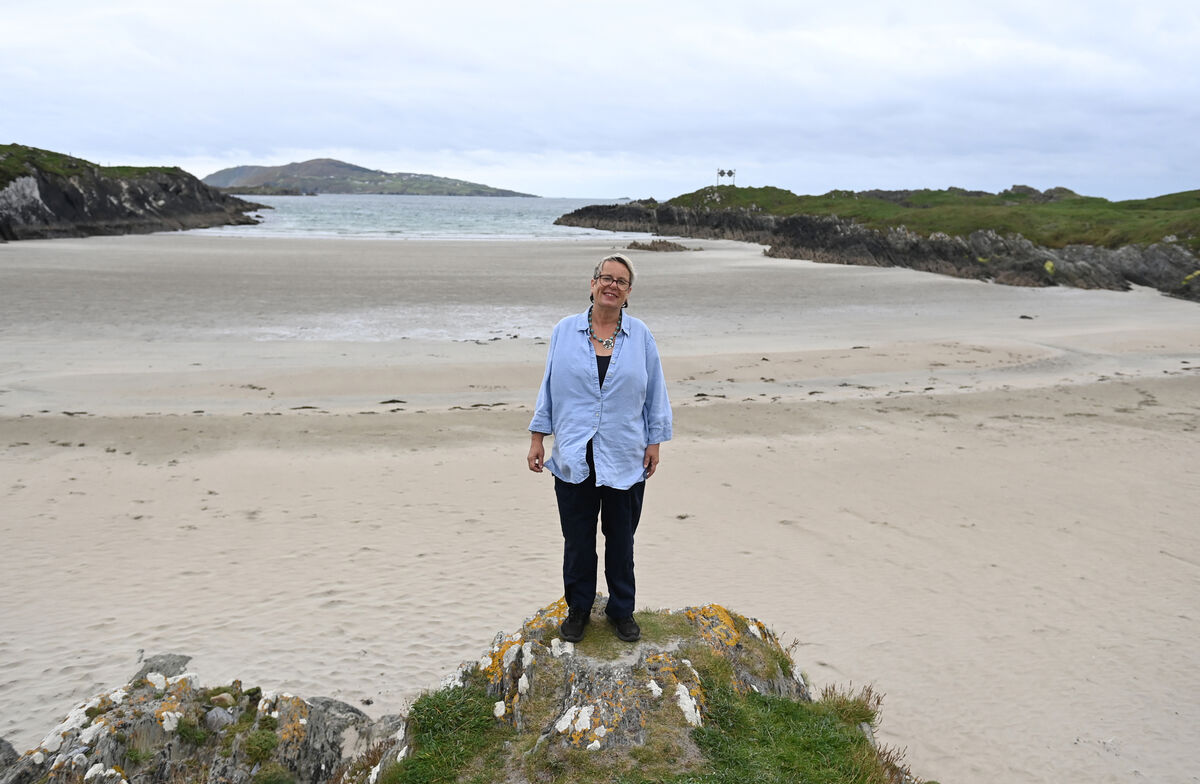
“So when I heard that the government were building new social housing, I made enquires, thinking that it might be nice to live in a more rural environment for both myself and for my little son.
“I was told that there were future plans to build on Sherkin island down in Cork. An island?
“I was not sure that I would like to live on an actual island and that I might feel isolated, but I decided to try it out for a month anyway to see what it was like.”
The moment Mags set foot on Sherkin, she fell in love with the tranquillity and beauty of her surroundings, and she knew she could never go back to living in an environment of social deprivation, she had found her safe haven on the island.
“I came down here on St Brigid’s day, and from the minute I stepped onto the island - I knew I was home,” she recalls.
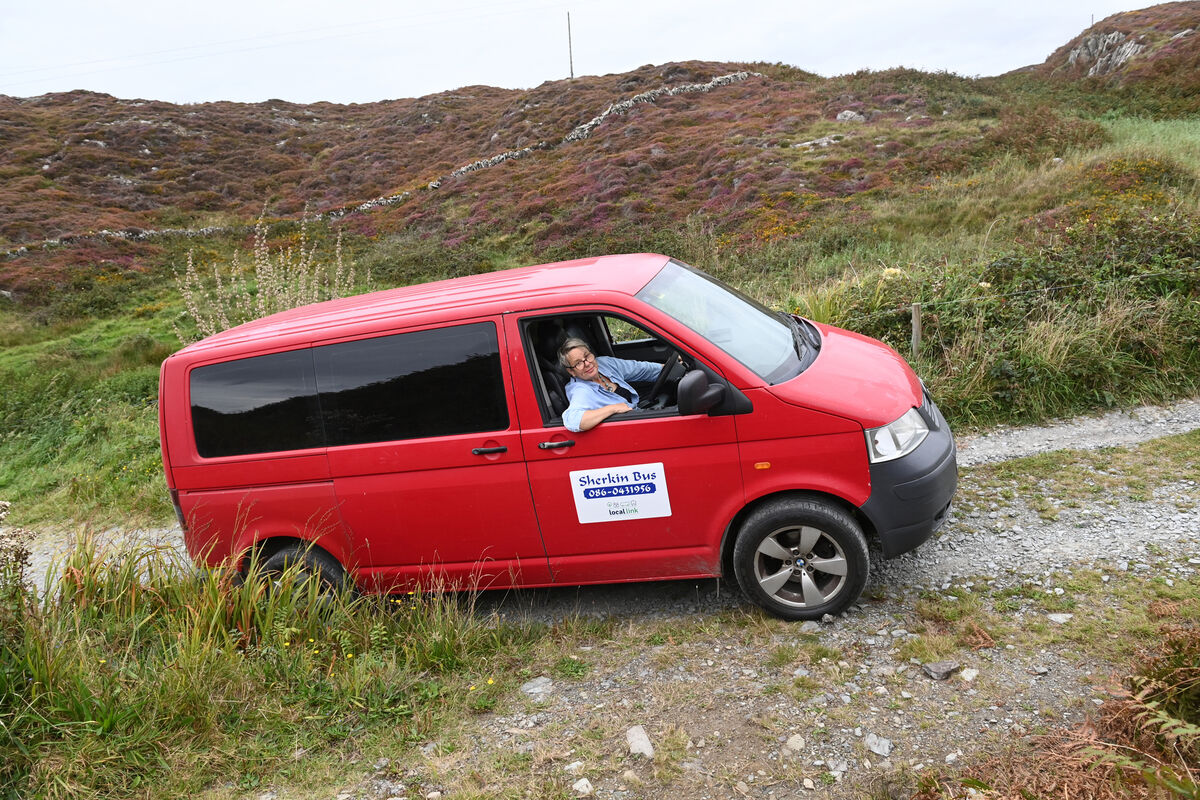
It wasn’t all plain sailing, however, as at first she did not have anywhere to live, but she was determined to make it work and she soon made friends with some of the islanders, who granted her permission to temporarily put a gypsy-style caravan in a field.
She settled there for a short while with her little boy, until eventually a small development of social houses were built, and she was able to move into one of them. She was filled with contentment.
“Even before I got my house, when I was living in the gypsy caravan, I woke up one morning thinking - if I were to die now, I would have everything I every wanted.
I was living in a great community, surrounded by nature in a beautiful place by the sea. What more could you ask for?
More than three decades on and Mags is well adapted to the island way of life, living in what she describes as a very matriarchal community. Not being able to hop down to the local shop for milk does not bother her one bit.
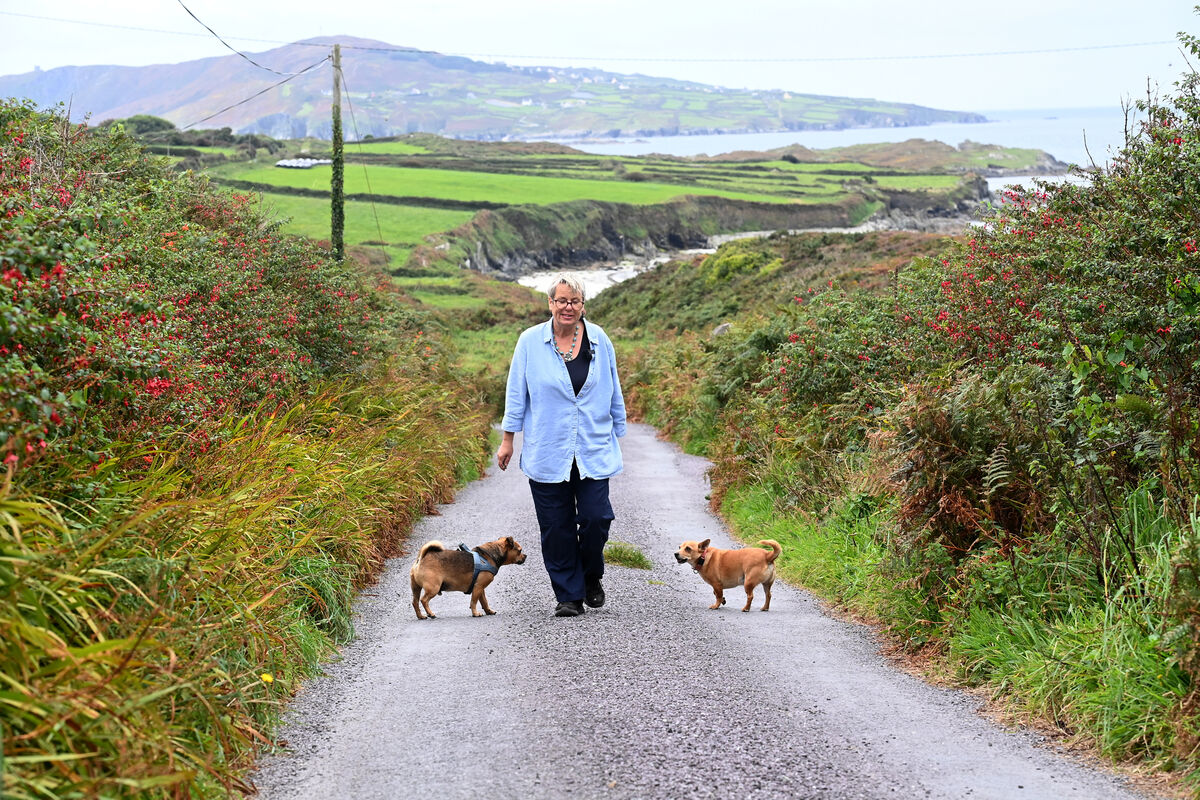
“When I moved into my house, I found myself living in a small community of fantastic neighbours. Everybody would help everybody else out. You’d never be short of anything, and if you were then one of your neighbours would oblige, and you’d return the favour. It’s the way of life here.”
Sherkin is three miles long and one and a half miles wide, and the only way to get there is by ferry. It’s an all year round service, leaving from the little village of Baltimore and taking around ten minutes to traverse the short 4km stretch of water.
Mags’ children both went to school in the little primary school on the island which has since closed down. These days the primary school children have to get onto the ferry each morning to be taken to the little school in Rath, near Baltimore.
Secondary education has always meant that children had to leave the island. Her daughter Niamh took the ferry each morning to go to school in Skibbereen, while her son David went to boarding school in Bandon.
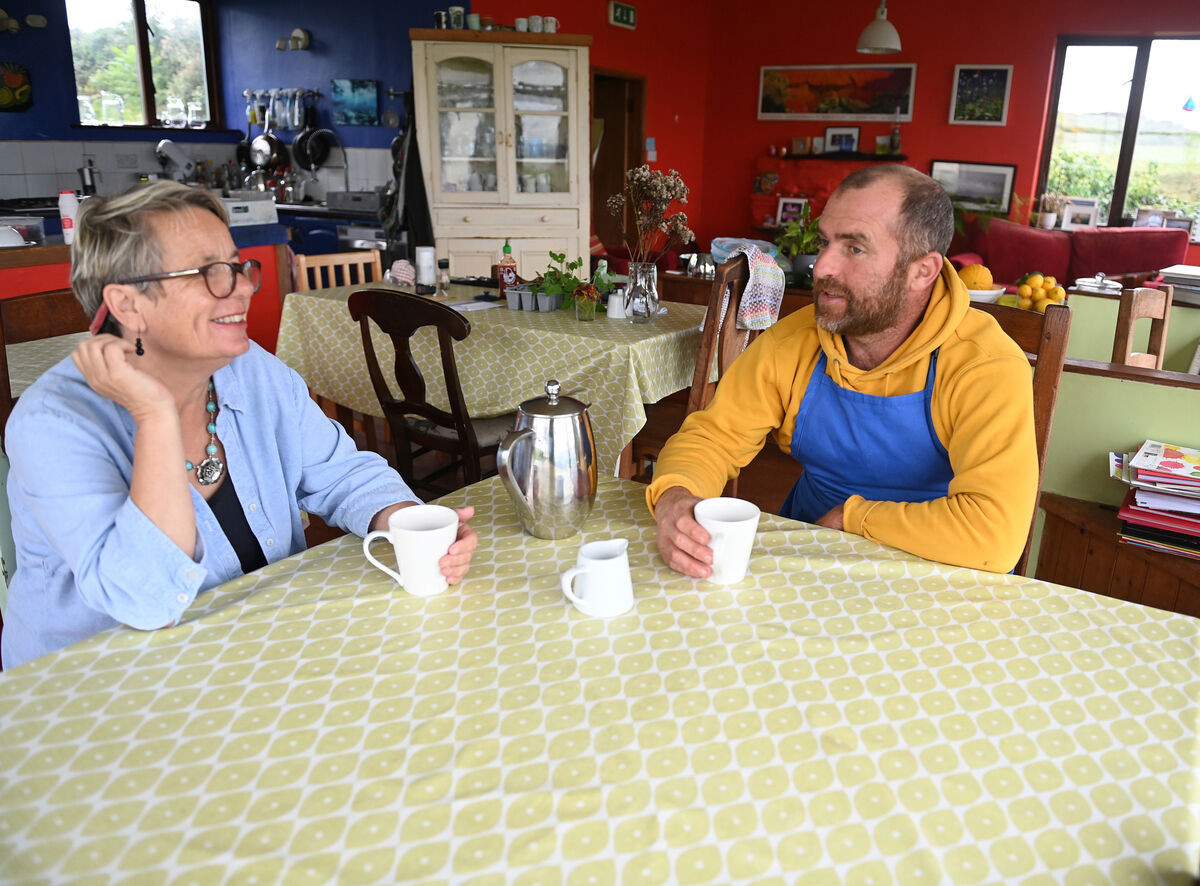
“Grocery shopping comes by ferry from Fields supermarket in Skibbereen. John Field, the supermarket owner, is a legend to the islanders.
“The van delivers the shopping to the pier in Baltimore, and then it’s brought over on the ferry four times a week. It’s put into boxes and tied up with strong string so it can be lifted easily from the ferry and into the vehicles of the islanders to transport home.
“Without this service, island life would be a lot harder.
“I go out every couple of weeks too, and I have a freezer, you learn to keep the freezer full, and freeze bread and milk,” she explains.
For us to go shopping for other items, such as clothes, it’s a 120 mile round trip to Cork. It’s a huge big deal.
“I tend to do my clothes shopping online, although I do enjoy the odd day out a few times a year.”
The ferry is the lifeline to the island and Mags knows the timetable off by heart, and since 2008 she has been job sharing as one of three people who drives the island bus - a nine- seater transporter dropping people to and from the ferry.
“ We have 14 ferries a day in the summer and 12 in the winter.”
She is also the administrator for the Sherkin Island Facebook page where all the local news is posted.
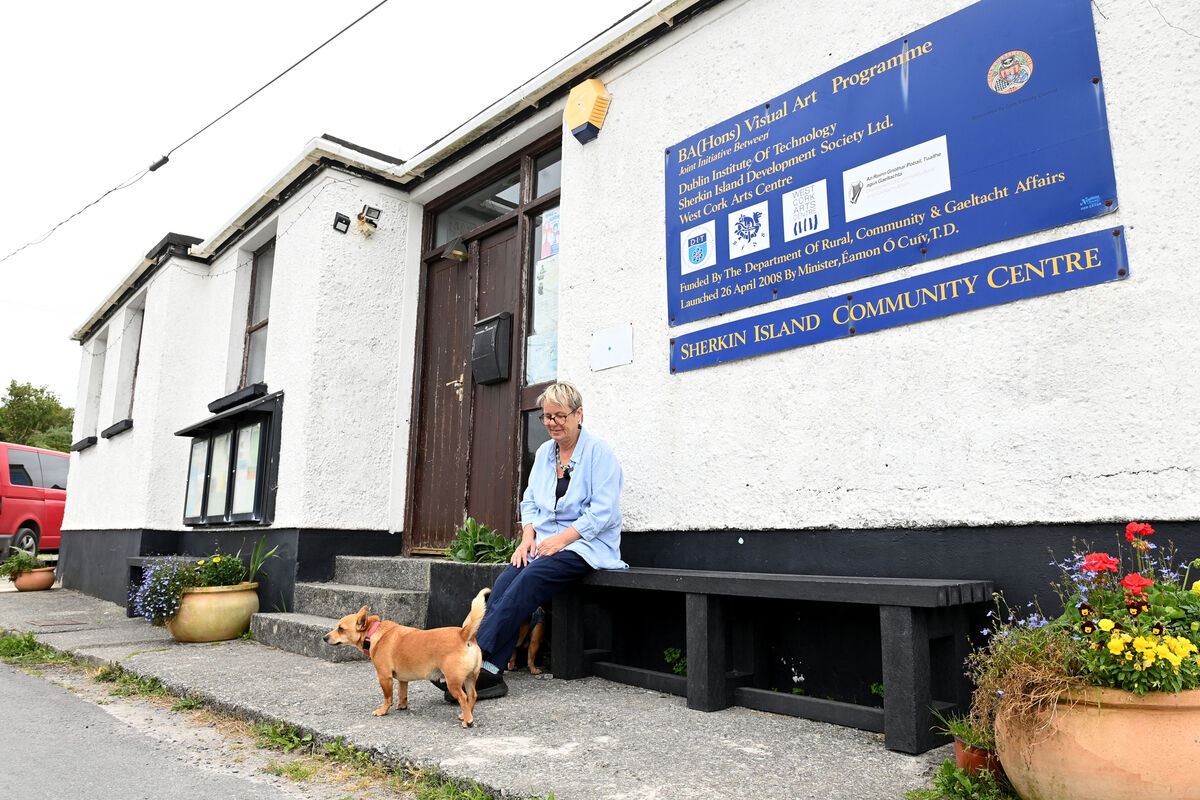
“We keep our eye on the weather at all times. Most of the time the ferry is running, but it occasionally arises that the weather is too bad, maybe the winds are too strong, or there might be delays due to technical reasons, so you need to make advance preparations for everything. You always need to think ahead if you are getting to an appointment on the mainland, or you need to get to the airport.”
Mags singlehandedly raised her two children on the island.
It might have been a different story for her but for a terrible tragedy which occurred back in 2002.
“I was in a relationship with a local island man Barry O’Driscoll, and we had our baby daughter Niamh together.
When she was only 15 months old, Barry had a fatal heart attack and dropped dead on the pier in Baltimore.
“It was an absolutely terrible time for myself and for his family, and of course I was utterly heartbroken for our baby daughter, losing her father so early on in her life. What doesn’t kill you makes you stronger, that’s for sure.”
In happier times, when she was expecting Niamh, and as the final months of her pregnancy came around, Mags began to get a bit nervous thinking about the fact that she might suddenly give birth and she could get stuck on the island. Cork seemed a long way away and even if she was to get off the island in time, she had heard stories of women giving birth in the ambulance, or sometimes even being delivered by their partners on the side of the road rushing up to Cork get to the hospital on time.
Living on an island in Roaring Water Bay meant that ensuring a safe delivery of her baby was that bit more complicated, so she decided that she would go up to Dublin and visit her mother.
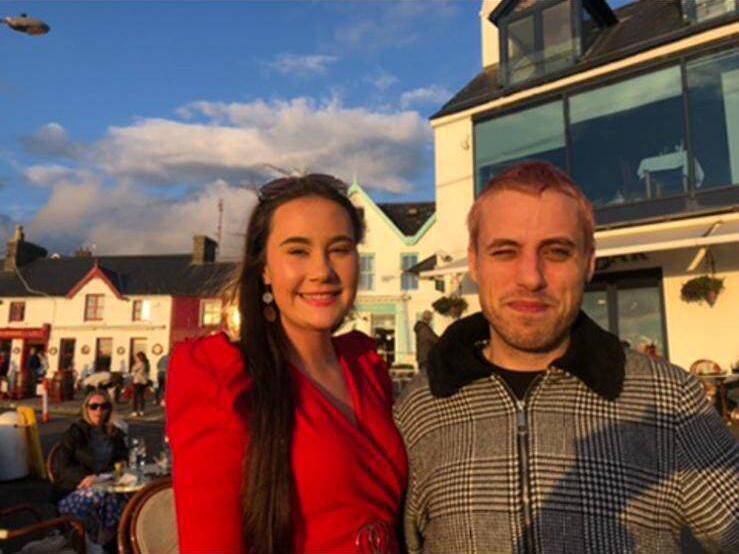
Luckily, Niamh obliged and decided to come into the world a week and a half before her due date, so she ended up being born in the Rotunda maternity hospital not far from her grandmother’s house.
Although Mags had been a bit nervous about the birth, due to the location, deep down she was reassured to know that if the circumstances of Niamh’s birth had been different, and if she had ended up going into labour on the island, that she could have called for help.
“If we have an emergency here then the lifeboat is absolutely fantastic. They are always on call, and they are all just volunteers. They might be sitting at home having their dinner, and suddenly get called out into the worst of storms and the darkest and coldest of nights. They are vital to our lives here on the island and to all the wider coastal community.
The RNLI are absolute heroes, they are superb, I cannot praise them enough.
Mags has seen many changes on the island since she came there to live, and laments the lack of a suitable premises for a social hub on the island all year round.
“Giving my son a better chance in life was the primary reason I moved to Sherkin. I’ve no regrets about having chosen to make my life on this island.
“It’s been a great place to raise my children, and growing up here has meant that they have had much better prospects in life.”
Next week: Fiona Mac Laughlan, Cape Clear
More in this section
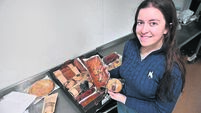
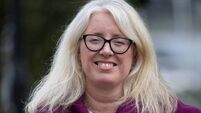
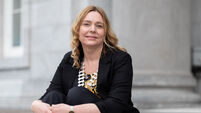
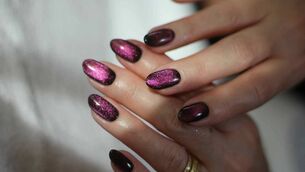


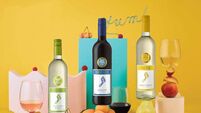
 App?
App?



